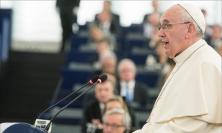2019 is the centenary year of the International Labour Organization. At the International Labour Conference that is taking place this week, delegates from around the world are celebrating that anniversary and seeking solutions to the challenges of the future of the world of work. What are those challenges and how is the ILO uniquely placed to address them? In an article that first appeared in the social justice journal of the Italian Jesuits, Giacomo Costa SJ and Paolo Foglizzo answer those questions by surveying the century-long history of the ILO and considering the future of work.
‘New forces are transforming the world of work. The transitions involved call for decisive action’. These are the opening words of the ‘Work for a brighter future’ report, published on 22 January 2019 by the Global Commission on the Future of Work.[1] With 23 members (politicians, diplomats, academics, and representatives of trade unions, associations and NGOs) from all over the world, the commission was established in 2017 by the International Labour Organization (ILO) in preparation for the centenary of its foundation, which took place in 1919 as part of the peace negotiations at the conclusion of the First World War.[2]
Among the many events organised for the centenary year is the annual meeting of the International Labour Conference, taking place, as every year, in June. This year the conference is invited to approve a solemn declaration to relaunch and update the mission of the ILO to fit the challenges of today’s world, challenges identified by an initiative launched in 2015 called ‘The future of work’.[3] Founded in a time characterised by Eurocentrism and colonialism, the ILO is now facing the challenge of embodying the intuition spelled out at the beginning of its Constitution– ‘lasting peace can be established only if it is based on social justice’ – in a world that is now far more diverse in cultural, political and social terms, and at the same time far more interconnected and interdependent.
Without arousing particular interest among the mass media or the general public, ‘The future of work’ initiative has attracted significant attention from key actors in the world of work, other international organisations and some organisations of civil society, who have started their own reflection on the subject. At various levels, the Church and numerous Catholic organisations have also been involved in this process, in dialogue with the ILO itself.[4] The Social Affairs Commission of COMECE (Commission of the Bishops’ Conferences of the EU) explains why in its document ‘Shaping the future of work’ (2018): ‘In the midst of industrialisation in the late 19th century, Pope Leo XIII shed light on the consequences of the new technologies and mass production on the human being. Today, the Church again feels committed to its mission to read the signs of the time – the new developments of digitalisation, artificial intelligence and ecological transition – and to call for the dignity of work for all.’[5]
In what follows, we will survey some features of the ILO’s century-long life and explore how they can continue to be fruitful in the contemporary context, in the world of work and beyond. The draft of the Final Declaration proposed for discussion at the International Labour Conference helps us to identify those features.[6]
Tripartism and social dialogue
The first is the method of social dialogue that results from the tripartite structure of the ILO. From its outset, each member country has been represented by a delegation of four: two delegates named by the national government and one each by trade unions and employers’ associations. This same tripartite structure is repeated at the level of the governing body and informs the entire structure. In other words – and this is probably unique in the panorama of international organisations – in the ILO, each country’s ‘face’ does not correspond with that of its government, but social partners enjoy a representation with authentic and independent legitimacy. The constitution of the ILO thus escapes the emphasis on statehood that characterises all international organisations (at least those that have ‘member states’) and sometimes ends up blocking their ability to act, especially when nationalist or isolationist stances prevail.
This structure relies on the intuition that the state, although playing a key role, cannot adequately represent all the components of society, and therefore there is room or even need for alternative modes of representation. The result is that, at least at the ILO, organisations that we could describe as ‘intermediate bodies’ (trade unions and employers’ associations) sit at the same table as governments on an equal footing, which makes for an intense and rich social dialogue. Furthermore, this promotes transnational links among homologous organisations (between trade unions, for example). At its core, this structure makes visible the fact that citizenship (the relationship that binds citizens to the state they belong to) does not synthesise or exhaust all facets of the social identity of individuals and groups. This may sound like a modern insight, but of course the ILO has been embodying it in its structures for a century, and thinks it deserves to be deployed in other contexts.
The mode of representation implicit in this tripartite structure of the ILO has proved to be a winning card and for this reason it remains a central feature of the ILO’s way of proceeding. However, we need to be aware that it gives almost absolute priority to the model of formal wage labour, which is the foundation for the existence of institutionalised social partners. It is less effective in giving a platform to other areas of the world of work, such as the informal sector, marginalised workers or the new forms of self-employment that are emerging in some sectors of advanced economies. Often those who work in these areas are not represented by trade unions, but by different institutions, sometimes faith-based (e.g. patronati in Italy), or forms of self-organisation (popular movements, associations of migrants, etc.). What space is available, or do we need to provide, to involve those sections of the world of work that the current tripartite structure inevitably leaves on the margins, so that everyone can really participate in the social dialogue?
The question is not only about the functioning of the ILO: can we imagine what could happen if we applied a tripartite model to national political life as well? Is it possible to think of a different articulation of the relationship between the state and intermediate bodies, in which the former is not overly dominant? It is a question of thinking afresh about the difference between ‘public’, ‘state’ and ‘government’; about the role of institutions rooted not in the state but directly in society itself, their relationship with the state, and about plural forms of representation. In a time when the growing weakness of intermediate bodies risks leaving each citizen alone in front of the power of the state, this is an issue of great importance in terms of the evolution of democracy.
A similar question concerns the functioning of international organisations other than the ILO: only states and governments have a real say within them, while civil society organisations receive a consultative status at most. This is consistent with the logic of diplomacy from which these organisations derive, but it is also one of the causes of blockages in their functioning, especially when dynamics of isolationism, nationalism or sovereignty trigger inescapable spirals of proposals being vetoed.[7]
Setting international standards
A second element, which is central to the ILO’s mandate, is the task of setting international labour standards and supervising their implementation, adopting a multilateral approach. Of course, this is about reaffirming and building on the achievements of the past century, but more fundamentally it shows confidence in the possibility of developing instruments of international governance through a multilateral method. This is something that many today doubt – observers, as well as many country leaders.
The conviction that the existence of labour standards as a reference for all countries constitutes a sort of global common good can be found in the 1919 Constitution of the ILO. In the field of work and employment, there is therefore a need for forms of governance and authority that make it possible to promote this common good, which is outside the scope of action of individual states. History shows that, in the absence of a supranational framework, states often remain prisoners of a sort of downward competition, hoping to attract productive investment by taking it away from more rigorous countries, which limits the protection of workers. It is the phenomenon known as social dumping, similar to environmental dumping, or tax legislation designed to attract capital from abroad, up to the extreme case of tax havens. Left to itself, virtually no state has the strength to resist the pressure to reduce standards to compete with neighbours, and the condition of all worsens.
Pope Francis recalled this in his speech to the plenary session of the Pontifical Academy of Social Sciences (2 May 2019): ‘In the current situation of globalization not just of the economy but also of technological and cultural exchanges, the nation-state is no longer able to procure on its own the common good of its populations. The common good has become global and nations must affiliate themselves for their own benefit. When a supranational common good is clearly identified, it necessitates a specific, legally and concordantly constituted authority capable of facilitating its fulfilment.’[8] In the field of labour, the ILO is the best entity we have to do this.
Again, we recognise the value of this intuition in an era in which a globalisation that has led to greater inequalities has fostered nationalist stances, which deny the existence of any supranational common good. Such stances can only lead to an international order based on the conflict of each state against all others and, ultimately, on the law of the strongest.
The Decent Work Agenda
‘Decent work’ is the expression the ILO has chosen to use to reformulate its mission. As the ‘Decent work’ report (1999) states, ‘The primary goal of the ILO today is to promote opportunities for women and men to obtain decent and productive work, in conditions of freedom, equity, security and human dignity.’[9] Very quickly, the phrase has spread well beyond the ILO’s boundaries, as we see in the formulation of Sustainable Development Goal §8 – ‘Decent work and economic growth’ – adopted by the United Nations within the 2030 Agenda for Sustainable Development. Let us remember that at least from a lexical point of view, ‘work’ was absent from the previous Millennium Development Goals (2000-2015).
This popularity of this expression is an undoubted success of the ILO, as is the coming together of actors from very different backgrounds – such as trade unions, NGOs, social action movements – to deliver its content. In 2000, on the occasion of the Jubilee of Workers (1 May), Pope John Paul II encouraged the ILO’s action, calling for the creation of a global coalition for decent work. Pope Benedict XVI recalls this in his encyclical Caritas in veritate, while deepening the reflection on the concrete meaning of the dignity of work.[10]
The success of the phrase does not eliminate the risk of its rhetorical emptying, of it being turned into a ritual formula in international ‘politically correct’ discourse – if not into a passe-partout for the development of a bureaucratic and technocratic apparatus – and therefore weakened in its potential to drive change. This risk depends on the fact that its actual content can be interpreted in very different ways, given the many different anthropological concepts operating in an increasingly plural world. It is the same problem that affects the vocabulary of human rights: if they are seen merely to be an attempt to avoid conflicts by focusing on the level of action or by proposing a minimum common anthropological denominator which excludes no position, they can turn out to be very poor in meaning.
A second reflection concerns the fact that the concrete content of the Decent Work Agenda remains largely anchored in the worker-employer dynamics (wage, safety and security, trade union freedom, gender equality, etc.). This is very important in the struggle against labour exploitation, which is not over, but it must not make us forget that work is much more, as it is a fundamental dimension of the relationship of human beings with society and the environment. The notion of decent work must be developed on these levels, too. The agenda already makes suggestions in this direction, which must be collected and strengthened. For example, work that causes destruction and death (e.g. the production of anti-personnel mines) or that has particularly negative environmental effects (this is now the case for the fossil fuel industry, as well as other polluting activities) cannot be considered decent even when safety and wage standards, or trade union freedom, are respected.
It's not just the ILO's task
It is quite clear that such a task cannot concern only the ILO, which shows great openness to and interest in contributions from many social actors, including faith-based organisations. Aggiornamenti Sociali is taking part, too, with a series of international partners, through the initiative ‘The future of work – Labour after Laudato si’’.[11] The purpose is to rethink work within the framework of integral ecology proposed by Pope Francis.
Within this international initiative, Aggiornamenti Sociali is directly engaged on two fronts: the first is research on how the teachings of Pope Francis stimulate social innovation: to what extent do organisations – Catholic and not only – succeed in putting into action the values from which they draw inspiration? The research, conducted in partnership with CeSPI (Centro studi di politica internazionale) in Rome, started from the analysis of Pope Francis’ words about work and labour. Its first result is the publication of the volume Il lavoro è dignità,[12] but its work is still in progress. The same goes for the other five research tracks of the initiative, which address issues such as the future of entrepreneurship, the relationship between employment and violence, migration, artificial intelligence and ecological transition. The second action involving Aggiornamenti Sociali, again within a network of international partners, is the training of future leaders of Catholic-inspired organisations active in the world of work. This programme has a double aim: to help participants acquire the operational tools to read social reality, and to deepen personal and spiritual motivation in the light of Catholic Social Teaching.
Through this initiative, which is obviously limited in relation to the vastness of the task, we experience how fruitful dialogue can be among people and institutions that are diverse in terms of geographical origin, culture, religious affiliation and areas of competence. Widening the space for discussion requires investment at many levels, but it is the only way to implement the ‘human-centred agenda for a decent future of work’ that the ILO proposes to itself and its partners as the fruit of its centenary. Everyone’s contribution is needed for this vision to develop in an integral sense, so that it articulates all the dimensions of reality – environmental, social, cultural, spiritual, etc. – and has enough space to cope with the myriad differences between human beings. The future of work depends on the work of each of us.
Giacomo Costa SJ is Editor-in-Chief of Aggiornamenti Sociali, the monthly social justice journal of the Italian Jesuits, and Paolo Foglizzois a member of the journal’s editorial board.
This is a translated and edited version of an article that first appeared in Italian as ‘Costruire insieme il futuro del lavoro,’ in Aggiornamenti Sociali, 6-7 (2019), 445-442: www.aggiornamentisociali.it/articoli/costruire-insieme-il-futuro-del-lavoro.
FURTHER READING
From the International Colloquium on ‘The future of work within the ecological transition’ (Paris, UNESCO Building, 20-22 May 2019): https://workecologyparis2019.com
H. Hagemann (ed.), Wishes for the Future: Recommendations of Experts to the ILO (Berlin: Deutsche Kommission Justitia et Pax, 2019).
G. Ryder, ‘The Future of Work and Sustainable Development’, Address at the Global Seminar organised by the Pontifical Council of Justice and Peace, Caritas Internationalis and ILO (Rome, 2-5 May 2016):
www.ilo.org/global/about-the-ilo/newsroom/statements-and-speeches/WCMS_480823/lang--en/index.htm
CIO (Catholic Church-Inspired Organizations), Statement related to Decent Work and the Post-2015 Development Agenda, (13 June 2013):
www.kolping.net/uploads/media/Auszug_E_Dialog__10_2013-2.pdf
[1] The report is available in several languages. The English version can be read at: https://www.ilo.org/global/topics/future-of-work/publications/WCMS_662410/lang--en/index.htm
[2] See www.ilo.org for more about the history of the organisation.
[3] See https://www.ilo.org/global/topics/future-of-work/lang--en/index.htm
[4] This has been documented in Aggiornamenti Sociali. See, for example: G. Riggio, ‘Faith & Politics: formarsi alla politica come servizio’ in Aggiornamenti Sociali, 11 (2018) 778-781; and P. Martinot-Lagarde, ‘Dialogo tra religioni e ONU per lo sviluppo umano. Una storia lunga un secolo’ in Aggiornamenti Sociali, 2 (2016) 143-151.
[5] Commission of the Bishops’ Conferences of the European Union, ‘Shaping the future of work: A reflection of the COMECE Social Affairs Commission’ (2018), p.7: http://www.comece.eu/dl/luOKJKJKKlkoJqx4KJK/Future_of_Work_Report_EN_2P.pdf
[6] See International Labour Conference, 108th Session, ‘Centenary outcome document’ (2019): https://www.ilo.org/wcmsp5/groups/public/---ed_norm/---relconf/documents/meetingdocument/wcms_700622.pdf
[7] The polarisations that currently mark the relationship between the member states and the European institutions suggest that the EU, too, could benefit from the adoption of tripartite logic, making room for forms of representation that are not rooted in statehood and stimulating the weaving of relationships, belonging and identity. The above-mentioned COMECE document also calls for greater involvement of social partners, civil society and Churches (i.e. non-state actors) in the European Semester. This could be one of the avenues to consider when thinking about the increasingly urgent reform of the European institutions which will certainly involve, together with the member states, the newly elected Parliament and the new Commission that will be appointed before the end of this year.
[8] Pope Francis, Address to participants in the plenary session of the Pontifical Academy of Sciences (2 May 2019): http://w2.vatican.va/content/francesco/en/speeches/2019/may/documents/papa-francesco_20190502_plenaria-scienze-sociali.html
[9] ‘International Labour Conference, 87th Session, ‘Decent Work’ (1999), p.3: https://www.ilo.org/public/libdoc/ilo/P/09605/09605(1999-87).pdf
[10] Pope Benedict XVI, Caritas in veritate (2009), §63: http://w2.vatican.va/content/benedict-xvi/en/encyclicals/documents/hf_ben-xvi_enc_20090629_caritas-in-veritate.html
[11] Find out more: https://futureofworklabourafterlaudatosi.net; or in Italian at www.aggiornamentisociali.it/progetti-the-future-of-work.
[12] G, Costa, P. Foglizzo, Il lavoro è dignità. Le parole di Papa Francesco (Rome: Ediesse, 2018).






